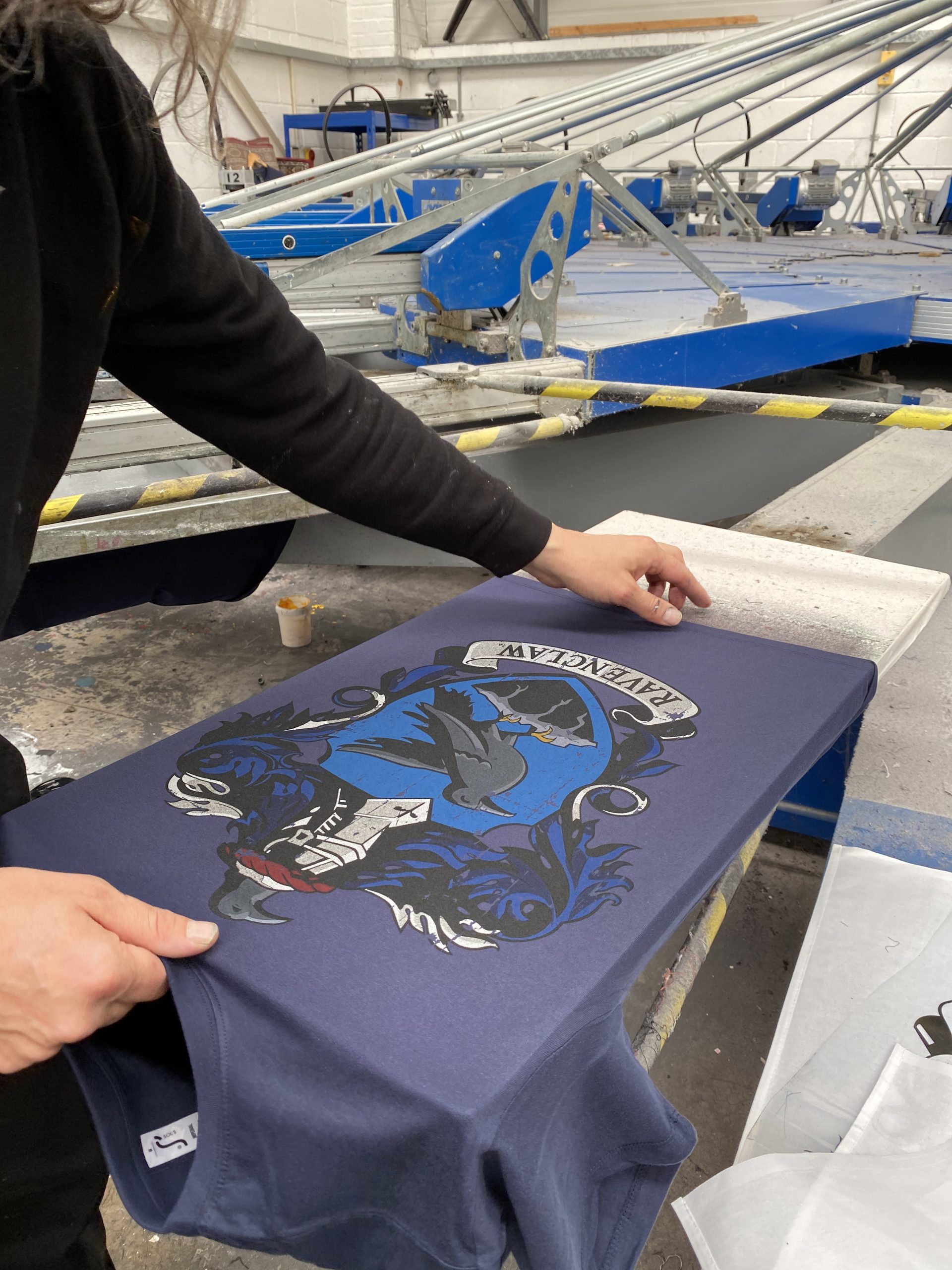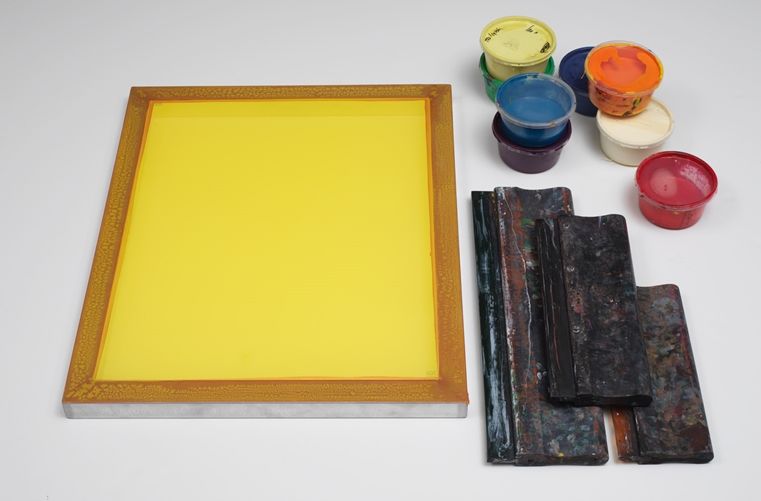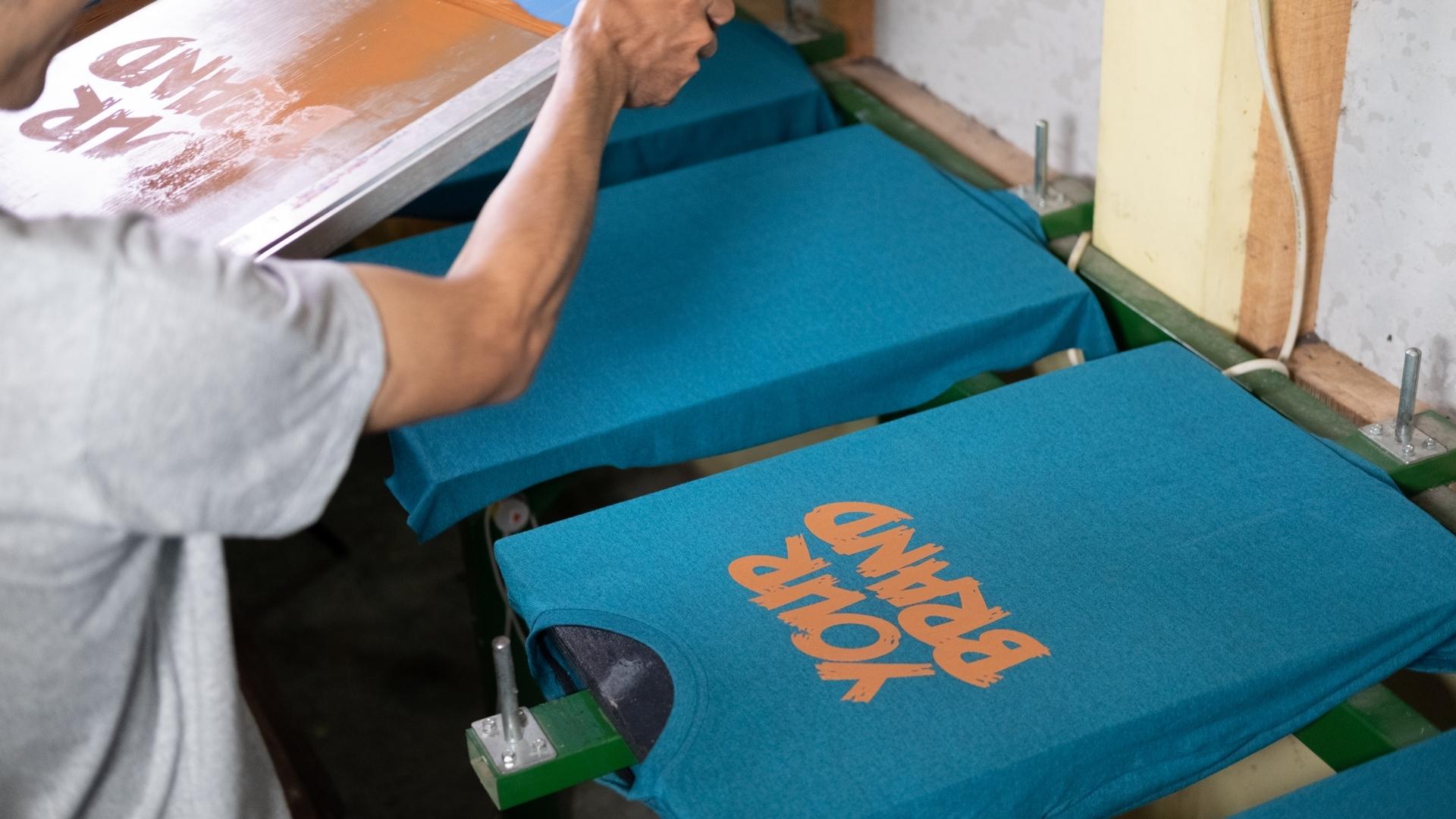The Important Overview to Recognizing Screen Printing and Its Versatile Uses
Screen printing has a rich background that dates back to ancient times, evolving into an advanced strategy used throughout various industries today. This guide explores the details of the screen printing procedure, detailing its applications in home, marketing, and style decoration - 10:9 Design Company. Comprehending these fundamentals can open up imaginative possibility for both commercial and artistic jobs. The adhering to sections will reveal essential pointers and techniques to enhance one's screen printing endeavors
The Background of Screen Printing
Although screen printing has origins that trace back centuries, its development mirrors the technical and artistic developments of different societies. Coming from in ancient China, the method was at first used for decorating textiles and later spread to Japan, where it came to be important to Ukiyo-e woodblock printing. The method shifted to Europe in the 18th century, where it gained popularity among artisans and industrial printers. The innovation of photo solution in the 20th century revolutionized screen printing, allowing for even more complex designs and better effectiveness. Musicians like Andy Warhol even more thrust its appeal, using the medium to develop famous works that mixed commercialism and fine art. By the late 20th century, screen printing had actually established itself as a functional strategy, utilized in vogue, marketing, and art. Today, it remains to develop, incorporating electronic innovation and expanding its applications throughout numerous sectors.
The Screen Printing Process Explained
Screen printing transforms imaginative visions into concrete styles with a series of exact actions. Initially, a picture is developed and afterwards transferred onto a screen, commonly made from great mesh textile extended over a structure. A light-sensitive emulsion is used to the screen, which is revealed to light, hardening in locations not covered by the photo. After rinsing the unhardened emulsion, a pattern is developed.
Next off, the screen is placed over the substrate, whether it be fabric, paper, or one more product. Ink is then pushed through the open areas of the pattern using a squeegee, transferring the style onto the substrate listed below. This process can be repeated for numerous shades, requiring different displays for every color. The published item is cured making use of heat to ensure the ink adheres correctly, resulting in a sturdy, vibrant layout all set for usage.
Sorts Of Screen Printing Techniques

Additionally, specialty methods, such as discharge screen printing, get rid of color from the material to produce softer prints, while foil screen printing applies metal foil to achieve a glossy surface (10:9 Design Screen Printing). Each strategy supplies distinct features, satisfying different innovative demands and production ranges, ultimately broadening the possibilities within the screen printing domain name
Applications of Screen Printing in Different Industries

Additionally, the signage and advertising and marketing markets make use of screen printing for developing appealing screens and banners. This method allows for strong shades and detailed layouts that catch attention. In electronic devices, screen printing is utilized for using conductive inks to circuit card, necessary for component connections. Moreover, the home decoration industry embraces screen printing to produce unique designs on textiles and wall art. Generally, screen printing offers as a crucial device across varied areas, improving products with individualized and visually attractive graphics.
Tips for Successful Screen Printing Projects
While embarking on a screen printing job, careful attention to detail can considerably enhance the final result. Initially, selecting premium materials is vital; this consists of the screen, inks, and substratums. Utilizing proper mesh matters can influence ink deposition and information resolution. Preparation is equally essential; comprehensive cleansing of displays and correct direct exposure times assure crisp prints.
Next, exact registration is vital for multi-color prints. Making use of placement tools can assist attain precise layering. Furthermore, screening prints on scrap materials before manufacturing aids determine prospective problems without throwing away sources.

Often Asked Questions
What Products Are Finest for Screen Printing on Material?
Cotton and polyester blends are excellent for screen printing on textile due to their toughness and ink absorption. Furthermore, specialized materials like silk or canvas can produce special textures and coatings, improving the total layout top quality.
Just how Do I Clean and Maintain Screen Printing Devices?
To cleanse and preserve screen printing tools, one must regularly wash screens with appropriate solvents, inspect mops for wear, lube relocating components, and store all items in a completely dry, dust-free setting to prolong their life expectancy.
What Are the Ecological Influences of Screen Printing?
Screen printing can have considerable ecological impacts, including chemical waste from inks and solvents, water use throughout cleaning procedures, and power usage. Lasting practices and environmentally friendly materials are necessary for lessening these adverse impacts.
Can Screen Printing Be Done in the house Successfully?
Screen printing can be properly done at home with the ideal materials and techniques. Enthusiasts can produce quality prints, though success relies on their ability level, devices, and understanding of the procedure included.
What Are the Costs Associated With Beginning a Display Printing Company?

Starting a screen printing company involves expenses for tools, materials, and office. Preliminary expenditures typically range from a couple of hundred to several thousand dollars, depending commercial sign printing on the scale, high quality of equipment, and preferred production capability.
Screen printing has an abundant history that dates back to old times, developing into a sophisticated strategy utilized throughout different industries today. An additional strategy, rotary screen printing, employs cylindrical screens, facilitating continual printing on material rolls, therefore improving efficiency for large manufacturings. In addition, specialty strategies, such as discharge screen printing, remove dye from the fabric to create softer prints, while foil screen printing applies metal foil to achieve a shiny finish. In the fashion sector, screen printing is widely made use of to develop dynamic designs on clothing, enabling brands to showcase their distinct designs. Cotton and polyester blends are suitable for screen printing on fabric due to their sturdiness and ink absorption.